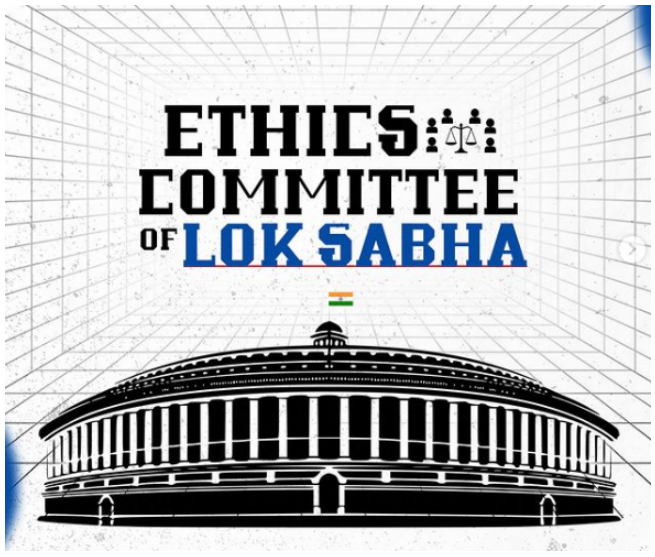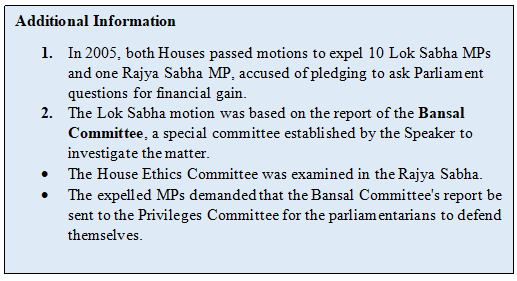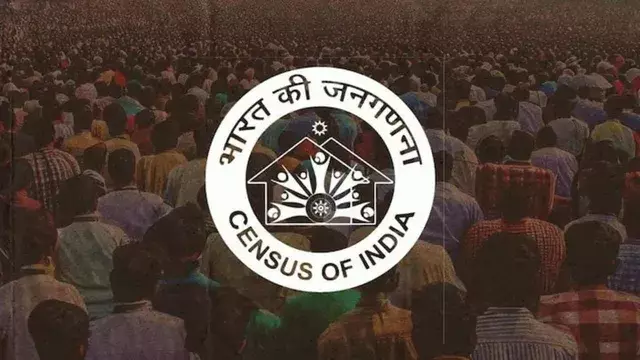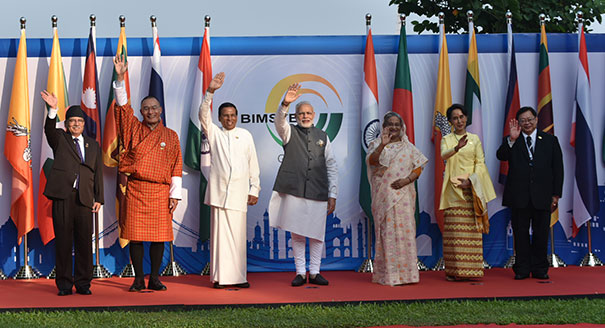- Courses
- GS Full Course 1 Year
- GS Full Course 2 Year
- GS Full Course 3 Year
- GS Full Course Till Selection
- Answer Alpha: Mains 2025 Mentorship
- MEP (Mains Enrichment Programme) Data, Facts
- Essay Target – 150+ Marks
- Online Program
- GS Recorded Course
- Polity
- Geography
- Economy
- Ancient, Medieval and Art & Culture AMAC
- Modern India, Post Independence & World History
- Environment
- Governance
- Science & Technology
- International Relations and Internal Security
- Disaster Management
- Ethics
- NCERT Current Affairs
- Indian Society and Social Issue
- NCERT- Science and Technology
- NCERT - Geography
- NCERT - Ancient History
- NCERT- World History
- NCERT Modern History
- CSAT
- 5 LAYERED ARJUNA Mentorship
- Public Administration Optional
- ABOUT US
- OUR TOPPERS
- TEST SERIES
- FREE STUDY MATERIAL
- VIDEOS
- CONTACT US
Lok Sabha’s Ethics Committee
Lok Sabha’s Ethics Committee
27-10-2023

Why in News?
Recently, Lok Sabha’s Ethics Committee has started investigation over ‘Cash for Query’ allegations on a Member of Parliament (MP) accused of accepting "Bribes" to ask questions in Parliament.
- The committee will conduct an investigation into the allegations and gather evidence from all relevant parties, including the complainant, witnesses, and the accused MP.
Major Outcomes
- If the Ethics Committee finds merit in the complaint, it can make recommendations. The recommended punishment typically involves the MP being suspended for a specified period.

- The House, comprising all MPs, will ultimately decide whether to accept the committee's recommendation and determine the nature and extent of any punishment.
- The accused has the right to challenge a potentially adverse decision in a court of law if they are expelled or face a potentially negative outcome.
- Court challenges to such decisions are typically limited and involve claims of unconstitutionality, gross illegality, or denial of natural justice.
What is Lok Sabha’s Ethics Committee?
-
About:
- The Speaker appoints members of the Ethics Committee for a year.
-
History:
- In 1996, a Presiding Officers' Conference in Delhi initiated the concept of ethics panels for the Lok Sabha and Rajya Sabha.
- On March 4, 1997, Vice President K R Narayanan established the Ethics Committee of the Upper House to oversee members' moral and ethical conduct and investigate misconduct cases.
- In 1997, a study group from the house committee of privileges recommended the creation of an Ethics committee, but it was not approved by the Lok Sabha.
- The Committee of Privileges has recommended the establishment of an Ethics Committee during the 13th Lok Sabha.
- The Ethics Committee, established by the late Speaker, G M C Balayogi, was initially an ad hoc body but became a permanent part of the House in 2015.
-
Procedure for Complaints:
- A Member can be sued by another Lok Sabha MP, providing evidence of alleged misconduct and an affidavit stating the complaint is not false, frivolous, or vexatious.
- If the Member himself complains, the affidavit is not needed.
- The Speaker has the authority to refer any complaint against an MP to the Committee.
- The Committee conducts a Prima Facie inquiry before examining a complaint and makes recommendations after evaluating it, not relying solely on media reports or sub-judice matters.
- The Committee presents its report to the Speaker, who inquires if the House should consider it.
- The report includes a half-hour discussion provision.
-
Overlap with Privileges Committee:
- The Ethics Committee and Privileges Committee frequently collaborate, with allegations of corruption against MPs typically directed to the Privileges Committee for more severe cases.
- The Privileges Committee's primary objective is to ensure the protection of Parliament's freedom, authority, and dignity.
- Members and the House can be accused of breach of privilege, if actions that undermine the authority and dignity of the House are taken.
- The Ethics Committee is responsible for handling misconduct cases involving MPs.
Conclusion
Recent events of misbehavior and malpractices by elected representatives in both upper and lower houses have made it important to make the working of various committees more transparent and efficient for a strong and effective parliamentary functioning.



